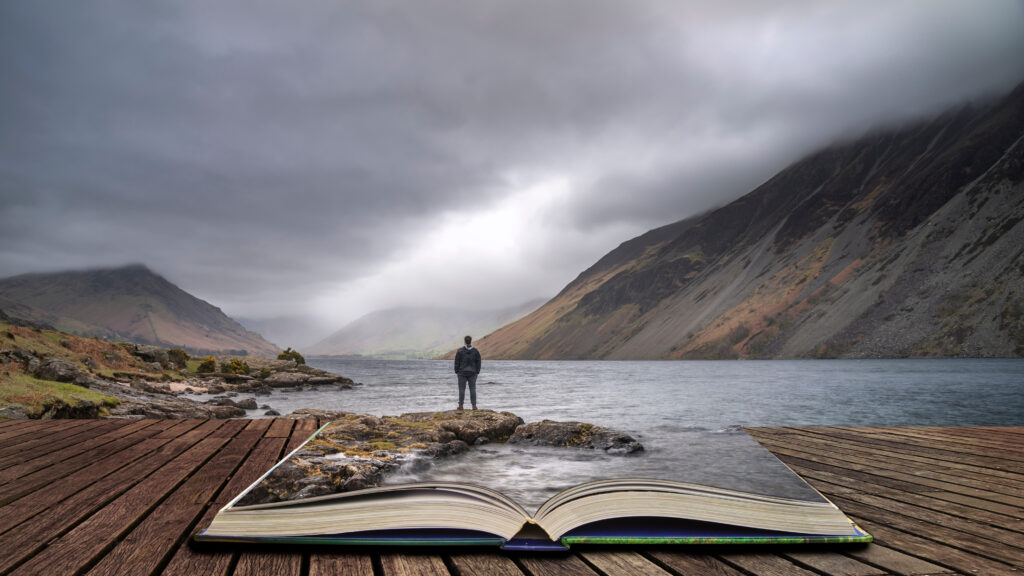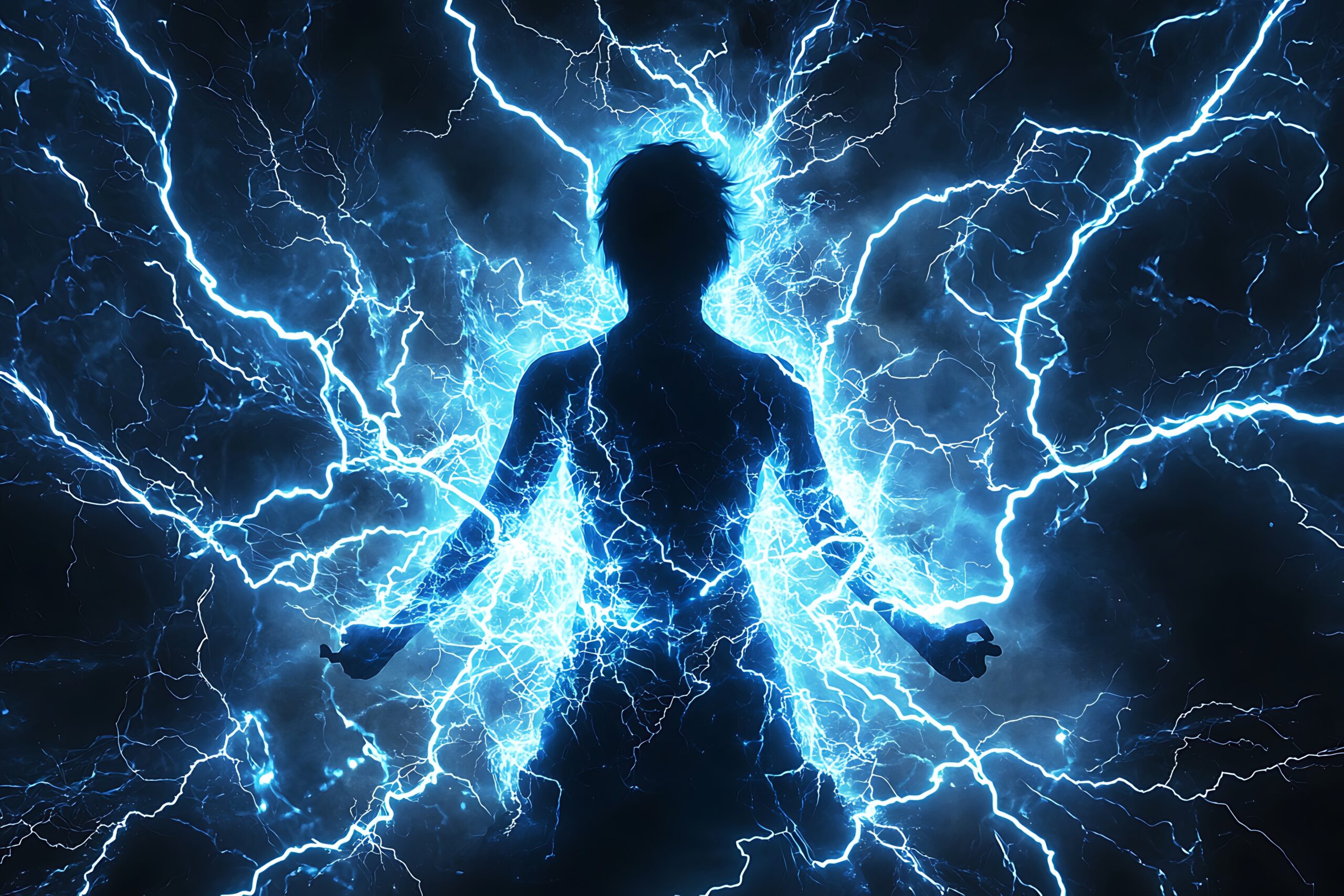What if your most forgettable experiences could become legendary stories? How do you turn everyday mishaps into memorable moments that people beg you to retell? And what if the secret to unforgettable storytelling is already inside you—just waiting to be unleashed?
In this post, you’ll discover how to transform even the most mundane scenes—from coffee runs to cab rides—into cinematic tales brimming with humor, drama, and emotional punch. This guide doesn’t just teach you to tell stories—it hands you the flamethrower, shows you where to aim, and says, “Make ‘em feel something.”
Whether it’s wielding a killer callback, exaggerating with flair, or delivering a one-liner that gets quoted for months, this wickedly smart guide will help you turn awkward fails and everyday events into memorable moments that land like mic drops. Because life isn’t about waiting for something exciting to happen—it’s about making the ordinary unforgettable.
A devilishly good guide to turning the mundane into the magnificent
Let me ask you something.
Have you ever walked into a room, dropped a one-liner, and watched the entire atmosphere shift—like you’d just stirred martinis with lightning?
Or are you more the type who tells a story about your vacation… only for your audience to politely nod while mentally assembling their grocery list?
Be honest.
The difference between forgettable and unforgettable isn’t charisma, cash, or cosmic good looks.
The secret—the real black magic—is storytelling.
Not just telling a story, mind you, but transforming any moment—any dry, lifeless speck of reality—into a blazing memory that demands attention, dances through retellings, and lingers in the minds of those lucky enough to hear it.
Today, my chaotic companion, I’m going to teach you how to do just that.
Because the world is full of moments. But only a few of them are legendary.
Let’s make yours unforgettable.
Table of Contents:
Chapter 1: Storytelling is a Superpower (And You’re Wasting It on Weather Talk)
Chapter 2: The Devil Is in the Details
Chapter 3: Start in the Middle, End on Fire
Chapter 4: Use Your Voice Like a Weapon
Chapter 5: Turn Fails into Fireworks
Chapter 6: Elevate the Stakes (Even If You Lie a Little)
Chapter 7: Invite Them In (Make It About Them)
Chapter 8: Use Silence Like Spice
Chapter 9: One Line to Rule Them All
Chapter 10: Treat Every Moment Like It’s a Scene Worth Filming
Chapter 11: Master the Art of the Callback
Chapter 12: Break the Fourth Wall (With Flair)
Chapter 13: Turn Mundanity into Myth
Chapter 1: Storytelling is a Superpower (And You’re Wasting It on Weather Talk)
Most people have no idea how powerful they are.
They wield stories like toddlers with flamethrowers—wild potential, zero finesse.
“Did you hear about Karen’s baby shower?” they say, as if the tale that follows will somehow alter the fabric of time.
Spoiler: It doesn’t.
Here’s the truth: Every moment has the potential to become a story. And every story has the potential to become a memory that lasts longer than most celebrity marriages.
The mundane? It’s raw material.
The masterful? They make ordering coffee sound like a scene from a Bond film.
Example A:
“So I went to Starbucks.”
yawn
Example B:
“There I was—under-caffeinated, over-dramatic, staring down a barista named Troy who looked like he moonlighted as a Viking ghost. I ordered a venti. He handed me a tall. War was declared.”
See?
Same coffee. Different impact.
Chapter 2: The Devil Is in the Details
Generic stories die faster than your last houseplant.
You need texture. Sensory detail. Odd little specifics that hook into the imagination like velvet claws.
You didn’t just get into a cab. You got into a cab that smelled like regret and cumin, driven by a man named Sal who believed raccoons were government spies.
Now that’s a story.
The trick? Always notice one strange thing. One peculiar detail that no one else clocked. A sound. A scent. A nervous tic. A half-eaten muffin that somehow becomes a metaphor for your entire dating life.
Use it.
Make your story feel like a movie—because in your universe, you are the star. Might as well give the audience a show.
Chapter 3: Start in the Middle, End on Fire
Look, I love a good origin story. I also love not being bored to eternal damnation.
So skip the buildup.
Don’t start your story with “So first I woke up and brushed my teeth…”
Start in the middle of the action. The chaos. The juicy part.
Start with:
“By the time I realized I was in the wrong Zoom meeting, I’d already pitched a sexy rebrand to three Catholic school board members.”
Then, once you’ve ensnared your listener like a song they can’t un-hear, end it on fire.
No limp handshakes. No “and then I went home.”
End with something that makes them laugh, gasp, groan, or say “Wait, what?”
A twist. A line. A mic-drop. A casual “And that’s how I accidentally joined a cult. Twice.”
Make them feel something—and you’ve made it memorable.
Chapter 4: Use Your Voice Like a Weapon
Now, I don’t just mean literal voice. Though yes, if you can speak like melted sin and thunderclouds, that helps.
I mean voice as in your essence. Your rhythm. Your mischief. Your style.
Storytelling isn’t about repeating what happened. It’s about how you tell it.
Are you sarcastic? Dramatic? Understated with a lethal wink? Lean into it. Weaponize your weird.
You could say:
“My flight was delayed.”
Or you could say:
“Apparently, turbulence and divine wrath are the same thing, and Spirit Airlines invited both.”
Your voice is what turns the tale from a report into a performance.
Don’t just talk. Enchant.
Chapter 5: Turn Fails into Fireworks
Nothing is more human, more hilarious, and more holy than failure.
Tripping in public? Awkward text sent to your boss? Cried in Trader Joe’s because they were out of peppermint bark?
Perfection is boring. Disaster is delicious.
If you want to be remembered, tell the stories that went wrong—but tell them like a legend.
Don’t just say you failed. Make it operatic.
“I was meant to lead a workshop. I accidentally joined a Zumba class. By the time I realized, I was leading it. In heels. We burned 400 calories and my pride.”
Your mistakes are gold. They’re the scars you wear like sequins.
Chapter 6: Elevate the Stakes (Even If You Lie a Little)
Every great story has stakes. Drama. Risk. A feeling that something mattered.
Sometimes… you must exaggerate.
Now, I’m not suggesting full fiction. Just… cinematic upgrades.
Instead of “I got stuck in traffic,” say:
“I aged five years in that Uber. I reached spiritual enlightenment. I rewatched my life’s regrets between every red light.”
Instead of “I went on a bad date,” say:
“He brought a lizard. Named it after his ex. Tried to read me a screenplay. I faked a dental emergency.”
No one remembers “fine.” They remember epic.

Chapter 7: Invite Them In (Make It About Them)
Want to hook your listener like a pop song in July?
Make them part of it.
Not literally. Metaphorically.
Say things like:
- “You know that feeling when…?”
- “Imagine you’re standing there, and suddenly…”
- “I swear, if you’d been there, you’d have screamed.”
You’re not just telling a story. You’re conjuring an experience. You’re letting your listener live it.
People remember how you made them feel. So take them with you.
Make them laugh. Make them cringe. Make them wonder if they would’ve done the same damn thing.
Chapter 8: Use Silence Like Spice
Here’s a trick most people miss: pause.
Don’t rush the punchline. Let it simmer.
Example:
“So I walk in. And what do I see?”
[pause]
“Twelve clowns. One raccoon. And my ex.”
Silence is a spotlight. A slow drumroll. The devil’s smirk before the chaos hits. Use it.
Chapter 9: One Line to Rule Them All
You want your story to be repeated?
Make sure it has one killer line. One sentence that people will quote back to you months later.
Like:
- “And that’s why I no longer trust anyone named Kyle.”
- “So yes, I technically did commit a minor arson. But for love.”
- “I became a meme. Accidentally. Again.”
This is the tattoo your story leaves behind. Etch it well.
Chapter 10: Treat Every Moment Like It’s a Scene Worth Filming
Here’s the final truth: You’re always in a story.
You can choose to walk through life like an unpaid extra in a beige cardigan. Or you can move like the protagonist—commanding attention, making memories, and leaving emotional wreckage in your wake.
Take ordinary moments—and treat them like scenes.
The grocery store becomes a spy thriller.
The dentist’s office becomes a confession booth.
The elevator becomes your stage.
Bring drama. Bring humor. Bring you.
Life isn’t about waiting for the big stories. It’s about turning the small ones into sagas.
Chapter 11: Master the Art of the Callback
Ah, the callback—the secret weapon of comedians, seducers, and wickedly good storytellers.
It’s when you plant a delightful little seed early in your tale, then circle back to it later with a wink and a punchline. It’s what turns a fun story into a cult classic.
Think of it like narrative seasoning:
Early: “This guy had an eyebrow that twitched every time he lied.”
Later: “So when he told me he wasn’t married, guess which eyebrow started doing the salsa?”
Callbacks create cohesion. They make your story feel planned, polished, fated. Like destiny wearing leather pants.
Want to make your audience feel clever? Give them something to recognize. Let them connect the dots. Let them feel in on the joke.
Because once you’ve hooked them, they’ll be waiting for the twist to come full circle. And when it does? Oh, the payoff is sublime.
Chapter 12: Break the Fourth Wall (With Flair)
You don’t have to be on stage to break the fourth wall. You just need the guts to drop the act for one moment and talk to the audience like they’re in on the heist.
Interrupt your story. Address your listener. Give them that cheeky glance, the one that says, “Yes, I know. This is insane. And I’m telling you because you deserve the tea.”
It creates intimacy. Playfulness. A shared conspiracy.
Example:
“So I’m standing there, mascara running, shoes in hand, explaining to hotel security why I’m covered in pasta sauce and smelling like regret—and listen, I swear I wasn’t the one who ordered the flamingo.”
[Pause. Smile. Lean in.]
“Okay, fine. I ordered the flamingo.”
That’s not just storytelling. That’s seduction.
The audience becomes your co-conspirator. And there’s no stronger bond than shared chaos.
Chapter 13: Turn Mundanity into Myth
Nothing is truly mundane. Not if you frame it right.
A trip to the DMV becomes a test of your immortal patience.
Folding laundry turns into a metaphor for unraveling the threads of your failed marriage.
Waiting for your friend at brunch becomes a solo spiritual awakening at the altar of bottomless mimosas.
Everyday life is the blank canvas. You are the brush dipped in wildfire and sarcasm.
Here’s a trick: Add grandeur where there was none.
Don’t say:
“I picked up my dry cleaning.”
Say:
“I retrieved the sacred garments from the high priestess of starch, who warned me—cryptically—that ‘the stain was more stubborn than anticipated.’ I left shaken but pressed.”
See? Suddenly you’re not running errands. You’re on a quest.
Dull is a choice. Choose drama.
Final Thoughts
The world doesn’t need more content. It needs more moments.
More souls who can turn a spilled drink, a stolen cab, or a malfunctioning karaoke machine into a memory so vivid it practically glows.
You want to be unforgettable?
Then don’t just live your life. Narrate it. Embellish it. Perform the hell out of it.
Let your stories be strange, sexy, vulnerable, violent, hilarious, reckless, raw—and most of all, true to you.
Now go on. Make every room you enter a scene worth remembering.
And if you ever get stuck?
I’ll be waiting. With a drink, a smirk, and a front-row seat to your story.
So… what story are you going to make unforgettable today?
Tell it like it matters.
Tell it like sin.
Tell it like you.
And don’t forget to light it on fire.
Until next time, storytellers… stay legendary.




